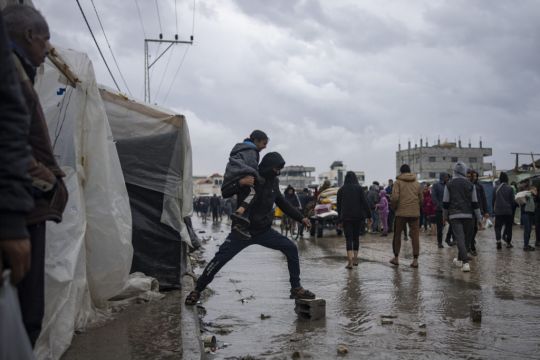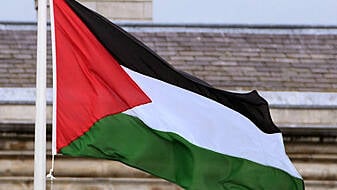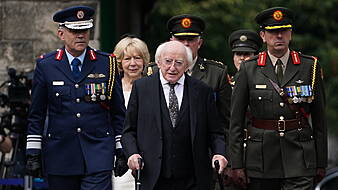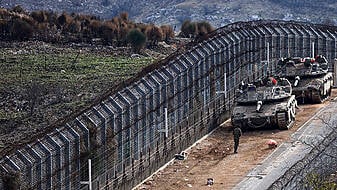The secretary-general of the United Nations has called on countries to resume funding the main agency providing aid in the Gaza Strip after a dozen of its employees were accused of taking part in the Hamas attack on Israel that ignited the war four months ago.
The dispute engulfing the UN agency for Palestinian refugees came as US officials said negotiators are closing in on a ceasefire agreement. The emerging deal would bring a two-month halt to the deadliest-ever Israeli-Palestinian violence, which has stoked instability across the Middle East.
UN Secretary-General Antonio Guterres warned that the agency, known as UNRWA, will be forced to scale back aid to more than two million Palestinians in Gaza as soon as February.
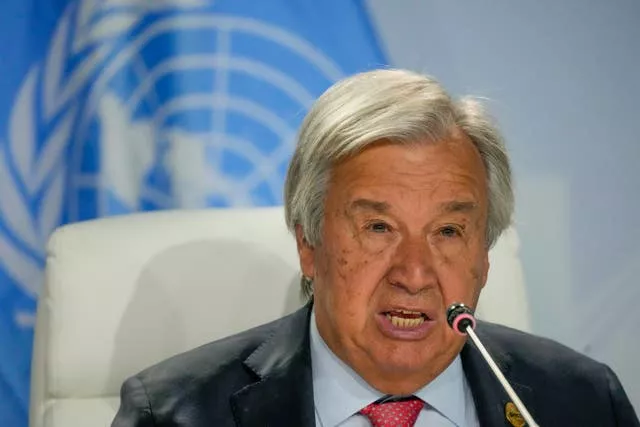
The coastal enclave is in the grip of a severe humanitarian crisis, with a quarter of the population facing starvation as fighting and Israeli restrictions hinder the delivery of humanitarian aid to the besieged territory.
“The abhorrent alleged acts of these staff members must have consequences,” Mr Guterres said in a statement.
“But the tens of thousands of men and women who work for UNRWA, many in some of the most dangerous situations for humanitarian workers, should not be penalised. The dire needs of the desperate populations they serve must be met.”
He added that of the 12 employees accused of taking part in the attack, nine were immediately sacked, one was confirmed dead and two others are still being identified.
He said they will be held accountable, including through criminal prosecution.
UNRWA provides basic services, from medical care to education, for Palestinian families who fled or were driven out of what is now Israel during the 1948 war surrounding the country’s creation. They now live in built-up refugee camps in Gaza, the Israeli-occupied West Bank, Jordan, Lebanon and Syria.
The refugees and their descendants number about six million, and in Gaza they are the majority of the population.

UNRWA, which has some 13,000 staff members in Gaza, expanded its operations during the war and runs shelters that house hundreds of thousands of newly displaced people.
More than two million of the territory’s 2.3 million people depend on the agency’s programmes for “sheer survival”, including food and shelter, UNRWA Commissioner-General Philippe Lazzarini said.
It is a lifeline that could “collapse any time now”, he said after the funding was suspended.
The United States, which is the agency’s largest donor, immediately cut funding over the weekend, followed by eight other countries, including Britain, Germany and Italy. Together, the nine countries provided nearly 60% of UNRWA’s budget in 2022.
The Israel-Hamas war has killed more than 26,000 Palestinians, according to local health officials, destroyed vast swathes of Gaza and displaced nearly 85 per cent of the territory’s people.
Hamas’s October 7th attack on southern Israel which sparked the war killed about 1,200 people, mostly civilians, and militants took about 250 hostages to Gaza.

Meanwhile, two senior Biden administration officials said US negotiators are making progress on a potential agreement under which Israel would suspend military operations against Hamas for two months in exchange for the release of more than 100 remaining hostages.
The officials said terms of the yet-to-be sealed deal would play out over two phases, with the remaining women, elderly and wounded hostages to be released by Hamas in a first 30-day phase. The emerging deal also calls for Israel to allow more humanitarian aid into Gaza.
More than 100 hostages, mainly women and children, were released in November in exchange for a weeklong ceasefire and the release of 240 Palestinians imprisoned by Israel.
CIA director Bill Burns is expected to discuss the contours of the emerging agreement when he David Barnea, the head of Israel’s Mossad intelligence agency, in France on Sunday, along with Qatari prime minister Mohammed bin Abdulrahman Al Thani, and Egyptian intelligence chief Abbas Kamel.
Despite the apparent progress, Israeli prime minister Binyamin Netanyahu reiterated in a televised news conference late on Saturday that the war will continue until “complete victory” over Hamas.

Mr Netanyahu also lashed out at the mass protests held by families of the hostages and their supporters calling for another ceasefire and exchange deal. He said the demonstrations “strengthen the demands of Hamas”.
Mr Netanyahu’s popularity has plummeted since October 7th, and he has faced mounting protests demanding new elections, with many Israelis blaming him for the unprecedented security failures that day as well as the plight of the hostages.
Tens of thousands of Israelis join weekly Saturday night protests in Tel Aviv, and recently dozens of relatives of the hostages have started protesting outside the prime minister’s private residence in Caesarea.
